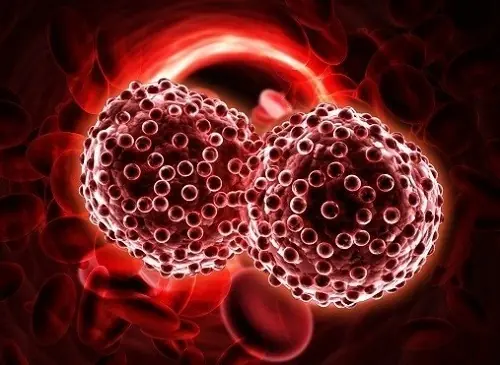
Warning: 9 Silent but Dangerous Signs of Cancer – Listen to Your Body
Cancer is often feared not only because of its severity, but also because it can quietly develop without noticeable symptoms in its early stages. Many types of cancer progress silently, showing vague or subtle signs that are easy to ignore or mistake for minor health issues. That’s why listening to your body and recognizing unusual changes is essential. Here are 9 silent but potentially dangerous signs of cancer that everyone should be aware of.
1. Persistent Fatigue
While tiredness is common in daily life, persistent fatigue that doesn’t improve with rest could be a red flag. Unlike normal tiredness, cancer-related fatigue can be overwhelming and constant. It may indicate leukemia, colon cancer, or other types where cancer affects blood cells or internal organs.
2. Unexplained Weight Loss
Losing more than 10 pounds without changing your diet or physical activity could be a warning sign. Sudden, unexplained weight loss may be associated with cancers such as pancreatic, stomach, esophageal, or lung cancer, and should always be investigated.
3. Changes in Skin Appearance
Your skin can often reflect internal health problems. Yellowing (jaundice), darkening, redness, or sudden changes in moles or birthmarks (size, color, border) can be signs of skin cancer or metastasis from other cancers. Any unusual or sudden skin changes should be checked by a dermatologist.
4. Prolonged Fever or Infections
A low-grade fever that lasts for weeks or frequent infections may indicate a weakened immune system. Blood cancers like leukemia or lymphoma often impair the body’s ability to fight infection, and fevers can be a result of that.
5. Pain That Won’t Go Away
Pain is the body’s way of signaling that something isn’t right. Ongoing pain without a clear cause — such as a persistent headache, back pain, or abdominal discomfort — could suggest cancer, especially if it becomes chronic or worsens over time.
6. Changes in Bowel or Bladder Habits
Sudden changes in bathroom habits, including persistent constipation, diarrhea, or a feeling of incomplete evacuation, could be signs of colon cancer. Similarly, changes in urination patterns — such as increased frequency, pain, or blood in the urine — might point to bladder or prostate cancer.
7. Unusual Bleeding
Bleeding that occurs outside of your normal cycle or without obvious cause should never be ignored. This includes coughing up blood, blood in the stool, or abnormal vaginal bleeding. These could be early signs of cancers affecting the lungs, colon, cervix, or uterus.
8. Persistent Cough or Hoarseness
A lingering cough that lasts for more than three weeks, especially if accompanied by blood or chest pain, can be a sign of lung cancer. Hoarseness may also indicate cancers of the throat, larynx, or thyroid. Don’t dismiss it as a common cold if it doesn’t go away.
9. Lumps or Thickening Under the Skin
Feeling a lump or thickening in areas like the breast, neck, armpit, or testicles should prompt immediate medical evaluation. While not all lumps are cancerous, many types of cancer — including breast and lymphatic cancers — often begin this way.
Listen to Your Body
Your body often gives signals before a serious condition becomes advanced. While these symptoms may also be caused by less serious health issues, the key is persistence and change. If you notice any of these signs lasting longer than usual, or getting worse, don’t ignore them.
Early detection can make a dramatic difference in treatment success and survival rates. Regular check-ups, screenings, and paying attention to your body's subtle messages can save your life.
News in the same category


2 SIGNS OF KIDNEY DAMAGE: IF YOUR MORNING URINE HAS THIS COLOR, SEE A DOCTOR IMMEDIATELY

Natural Defense Against Colds and Flu

At 65, I Lost My Vision – But This Drink Brought It Back!

Doctors Say These 9 Hidden Drinking Patterns Are More Dangerous Than Binge Drinking

Himalayan Fungus Discovery Boosts Cancer-Fighting Power by 40 Times, Scientists Say

Mom of 10 Shares Symptoms of Rare Cancer Before Passing Just Weeks After Diagnosis

Aloe Vera: A Natural Remedy for Nail Fungus 🌿💅

🧅 Unlock the Power of Onions: 7 Natural Ways to Boost Male Vitality & Fight ED

Oatmeal, apple and carrots! I don't eat any sugar at all! No flour

Cowboy Butter Chicken Pasta: A Flavorful Twist on a Classic Dish!

Stroke Is Increasing Among Young People: 4 Warning Signs During Sleep That May Predict a Stroke – What You Need to Know

Thyroid Cancer Self-Check at Home with a Glass of Water: How I Detected It Early and Got Easy Treatment

Woman, 46, Shares Surprising Symptoms She Ignored Before Her Heart Attack

10+ Urgent Warnings Your Body Sends Before It’s Too Late

No more constipation: this fruit is the “miracle” method for going to the bathroom, according to a gastroenterologist

5 Common Food and Drinks That Can Be Just as Bad for Your Liver as Alcohol

3 Signs Your Parent May Be Nearing the End of Life — How to Prepare for What’s Ahead

The science behind eye ‘sleep:’ What that crust really is
News Post

A Man Goes on a First Date with His Coworker and Sees That She Is Trying Her Best to Ruin It

I Was Excited to Meet My Fiancé's Parents, but Dinner Turned Into a Nightmare

My Grandmother Pretended to Be Deaf to Test Us before Dividing the Inheritance – Everyone Got What They Deserved

Mother Discovers She Is Not the Biological Parent of Her 7-Year-Old Son, Neither Is His Father

Man Stumbles upon a Headstone in the Woods and Sees His Childhood Photo on It

Granny Drains Savings Giving Grandson Best Day of His Life, Only Sees Him Again After 15 Years

Am I Wrong for Testing My Mother-in-Law on Christmas?

Music Teacher Offers Free Lessons to ‘Poor’ Boy, Then Discovers His Father's True Identity

My Stepdad Said He Doesn't Eat the Same Meal Twice and That My Mom Should Cook Fresh Food Every Day — So I Gave Him a Wake-up Call

7 Early Signs of Blood Cancer Everyone Should Know

2 SIGNS OF KIDNEY DAMAGE: IF YOUR MORNING URINE HAS THIS COLOR, SEE A DOCTOR IMMEDIATELY

Deputy Chief of Staff Stephen Miller & Karoline Leavitt Respond to Kamala Harris’ Criticism of President Trump

Nicolas Cage's Son Weston Marries the Love of His Life in Romantic Ceremony — Wedding Photos

Prince Harry Says He 'Would Love Reconciliation' With the Royal Family — Here's Why

Natural Defense Against Colds and Flu

At 65, I Lost My Vision – But This Drink Brought It Back!

Irresistible Pecan Pie Dump Cake Recipe 🥧

Doctors Say These 9 Hidden Drinking Patterns Are More Dangerous Than Binge Drinking
